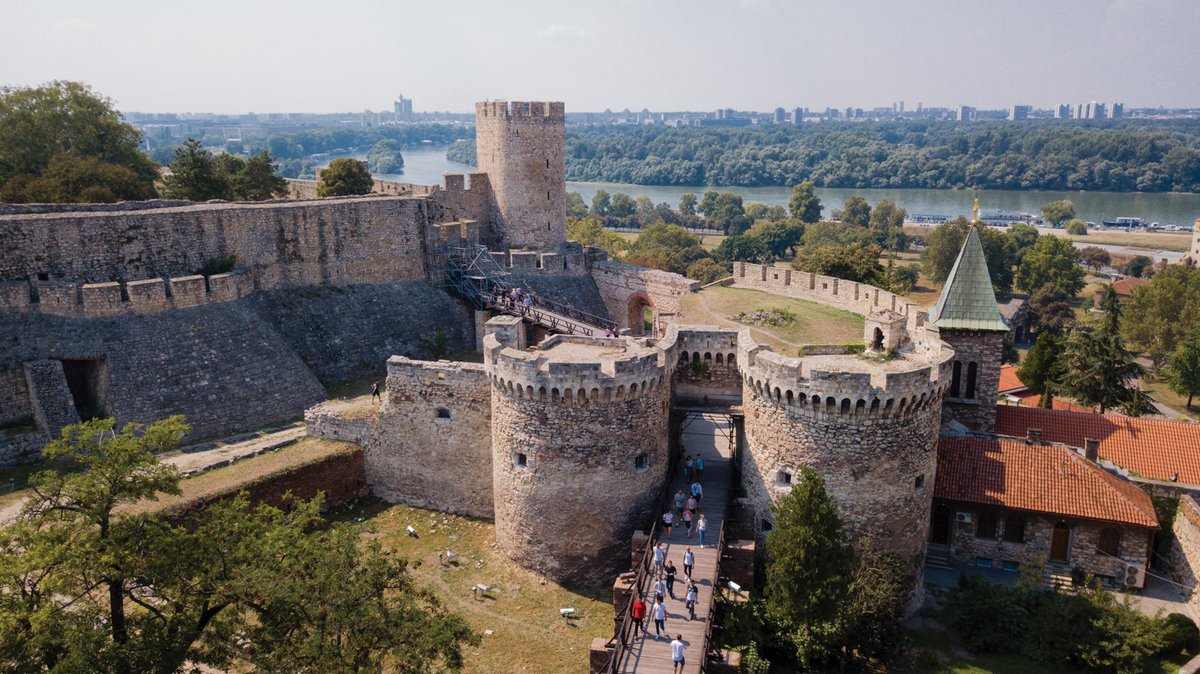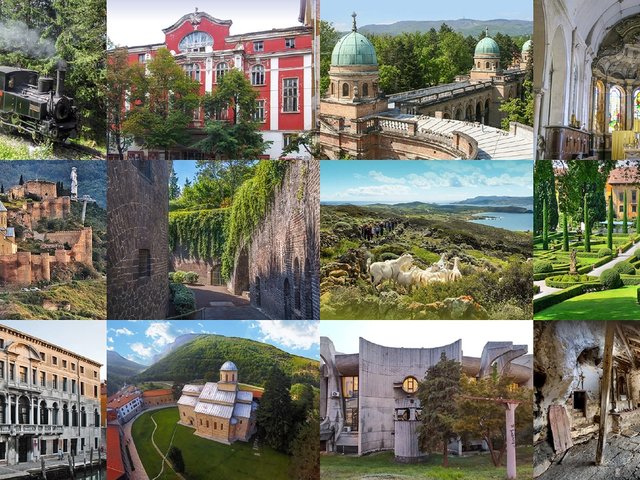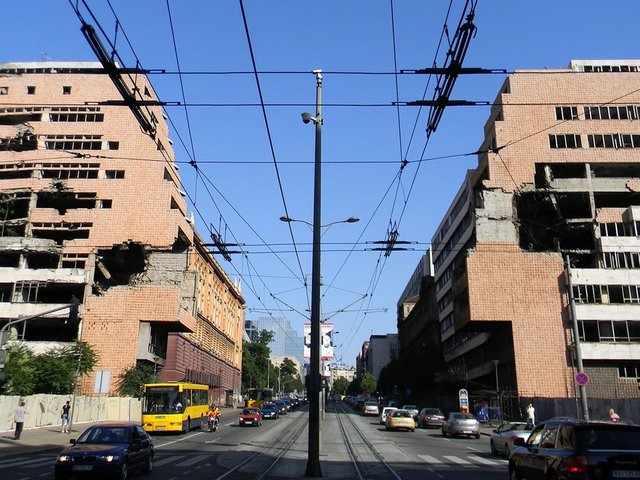The European heritage advocacy organisation Europa Nostra has joined local activists in opposing the Serbian government’s plan to construct a cable car system across the Sava river that would link a Belgrade shopping centre with the city’s ancient fortress, a candidate for Unesco World Heritage status.
Known as Kalemegdan, the fortress served as a military site for the defence of the Roman Empire in the first century AD and has yielded archaeological evidence of human presence since the Neolithic period. From its majestic perch at the top of a hill, it commands views of the city and the confluence of the Sava and Danube rivers.
“Should the proposed construction of the cable car system be implemented, the Belgrade fortress and its surrounding area would be negatively and irreparably affected, harming invaluable cultural heritage,” says Irina Subotic, the head of Europa Nostra in Serbia.
Demonstrators have taken to the streets in Belgrade and other Serbian cities this year to protest against attacks on journalists and politicians, and to demand free and fair elections. The cable car debate has become a flashpoint for anti-government activists in a turbulent political climate, Subotic says.
In April, the Serbian Administrative Court ruled that construction should be suspended and questioned the legality of a permit issued by the infrastructure ministry after a local NGO complained that no studies had been conducted on the environmental and heritage impact. “This is the beginning and we hope there will be more similar decisions,” Subotic says.
Local activists have gathered more than 15,000 signatures against the construction of the cable car line, which they say contravenes heritage laws and risks damaging the walls of the fortress, as well as disrupting views from the city. Europa Nostra has written to Unesco and the European Commission for support, and sent a delegation to meet with the Serbian prime minister Ana Brnabić.
The planned 1km route of the cable cars, envisaged as a tourist attraction, will cost €15m and requires six concrete support posts. The contract to build it was awarded in December to a consortium led by Leitner AG, a company based in Italy that constructs cable cars for ski resorts and cities around the world.




